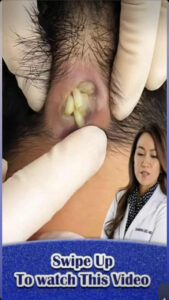Acne is a common skin condition that affects millions of people worldwide, but when it becomes severe, it can significantly impact both physical appearance and emotional well-being. Severe acne is more than just occasional pimples; it is characterized by widespread inflammation, deep cysts, nodules, and sometimes scarring. Those who experience it often face persistent breakouts that are painful, unsightly, and challenging to treat. Understanding severe acne requires exploring its causes, the impact it has on daily life, available treatments, and the lifestyle adjustments that can support skin health.
Severe acne typically manifests in the form of cysts, nodules, or widespread inflamed pustules. Unlike mild acne, which might present as occasional blackheads or whiteheads, severe acne is more intense and persistent. Cystic acne, in particular, involves deep, inflamed lesions beneath the skin’s surface. These cysts can be tender or painful to the touch and may rupture, leading to infection or permanent scarring if left untreated. Severe acne often affects the face, chest, back, and shoulders, areas where sebaceous (oil) glands are most active. The skin may appear red, swollen, and irritated, and outbreaks can last for months or even years if not properly managed.
The causes of severe acne are multifactorial, involving a combination of genetic, hormonal, and environmental factors. Genetics play a substantial role—if close relatives have experienced severe acne, the likelihood of developing it increases. Hormonal fluctuations are another major contributor, particularly those involving androgens, the hormones that regulate oil production in the skin. During puberty, for instance, androgen levels rise, which can overstimulate sebaceous glands, leading to clogged pores and inflammation. Hormonal changes during menstruation, pregnancy, or conditions like polycystic ovary syndrome (PCOS) can also trigger severe acne in adolescents and adults alike.
Excess sebum production, clogged pores, bacterial overgrowth, and inflammation form the core biological mechanism behind severe acne. When pores become blocked with dead skin cells and excess oil, bacteria—especially Propionibacterium acnes—can proliferate, causing red, inflamed lesions. The immune system responds to this bacterial invasion, which contributes to the redness, swelling, and discomfort associated with severe acne. Stress, diet, and certain medications can exacerbate these factors, making breakouts more frequent or intense.
The physical impact of severe acne is often compounded by its psychological and emotional effects. Individuals with severe acne may experience low self-esteem, social anxiety, and even depression. The visibility of cystic acne can make people feel self-conscious in social or professional settings, and the potential for scarring adds to the distress. Acne scars, such as pitted or raised skin, are often permanent and can serve as a lasting reminder of the condition, further affecting confidence and body image. Mental health support, in conjunction with dermatological treatment, is often a critical component of managing severe acne effectively.
Treatment for severe acne typically involves a combination of topical, oral, and procedural interventions, tailored to the individual’s skin type and medical history. Topical treatments include retinoids, which promote cell turnover and prevent clogged pores, as well as antimicrobial creams to reduce bacterial proliferation. Benzoyl peroxide, a common over-the-counter option, helps reduce bacteria and inflammation but can sometimes cause dryness or irritation if used excessively.
Oral medications are often necessary for severe cases. Oral antibiotics can help control bacterial growth and inflammation, though they are typically prescribed for a limited duration to prevent antibiotic resistance. Hormonal therapies, such as birth control pills or anti-androgen medications, may be effective for women whose acne is driven by hormonal fluctuations. For the most severe or treatment-resistant cases, isotretinoin—a powerful oral retinoid—can dramatically reduce oil production, prevent clogged pores, and promote long-term remission. However, isotretinoin carries potential side effects and requires close monitoring by a dermatologist.
Procedural treatments can complement medical therapy for severe acne. Chemical peels, laser therapy, and light-based treatments may help reduce inflammation, kill acne-causing bacteria, and improve the appearance of scars. In some cases, dermatologists may perform drainage or injection procedures for painful cysts to reduce discomfort and prevent further complications. Scarring can be treated with microneedling, laser resurfacing, or dermal fillers, though these interventions are typically considered after active acne is well controlled.
Lifestyle adjustments also play an essential role in managing severe acne. Maintaining a consistent skincare routine with gentle cleansing, non-comedogenic moisturizers, and sunscreen is critical to protect the skin without exacerbating inflammation. Diet may influence acne severity, with some studies suggesting that high-glycemic foods, excessive dairy intake, or processed sugars can worsen breakouts in certain individuals. Stress management, adequate sleep, and regular exercise contribute to hormonal balance and overall skin health, reducing the frequency or intensity of outbreaks.
It is important to note that severe acne often requires patience and persistence. Treatment outcomes may take weeks or even months to become noticeable, and flare-ups can occur despite adherence to a regimen. Regular follow-ups with a dermatologist are crucial to adjust therapies as needed, monitor for side effects, and ensure optimal results. Individuals should avoid self-medicating with harsh products or unverified remedies, as these can irritate the skin and exacerbate the condition.
Support systems are also vital for those coping with severe acne. Friends, family, and mental health professionals can provide emotional support, encouragement, and practical advice during periods of frustration or low confidence. Connecting with online communities or support groups can also help individuals feel less isolated, share experiences, and learn about effective coping strategies.
In conclusion, severe acne is a complex condition that affects both the body and mind. Its impact extends beyond the skin, influencing confidence, mental health, and quality of life. Understanding the underlying causes—genetic, hormonal, and environmental—provides a foundation for effective management, while a combination of medical treatments, procedural interventions, and lifestyle adjustments offers the best chance for long-term improvement. Early intervention, consistent care, and professional guidance are essential for controlling severe acne, minimizing scarring, and restoring both skin health and self-esteem. With the right approach, individuals affected by severe acne can regain confidence, enjoy clearer skin, and experience the relief that comes from addressing this challenging condition comprehensively.


